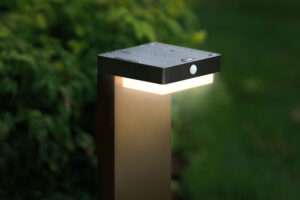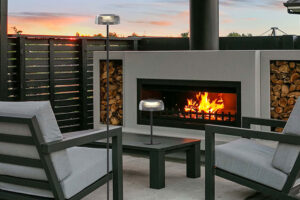
Understanding European Solar Product Needs
Choosing the right solar product suppliers in Europe means paying close attention to local rules, certifications, and what clients want. Each country may have different expectations, so it’s important to know the details before making decisions.
Regional Market Requirements
European countries have their own solar energy targets, feed-in tariffs, and incentives. For example, Germany and the Netherlands host large rooftop markets, while Spain and Italy have strong growth in ground-mounted solar parks.
Local climate also matters. In Northern Europe, panels must perform well in low sunlight and wet weather. In Southern Europe, heat resistance and efficiency in high temperatures are important.
Some regions may demand certain warranties, after-sales support, or language-specific documentation. It’s a good idea to check national energy guidelines and talk to local experts before choosing a supplier.
Common Certifications and Standards
Solar products in Europe must meet strict standards. The CE Mark is required for most solar panels and equipment, showing compliance with EU safety and environmental rules.
Other important certifications include:
- IEC 61215: for panel performance
- IEC 61730: for safety and construction
- RoHS: for limited use of hazardous materials
Some countries ask for national certificates, like TÜV in Germany or MCS in the United Kingdom. These offer extra assurance to clients and ensure products are accepted for local programs and subsidies.
Suppliers who cannot give clear and valid paperwork should be avoided, as they may not meet legal requirements.
Evaluating Supplier Credibility
Company Background and Reputation
Look into how long the supplier has been in business and check their company history. Suppliers that have been around for many years are less likely to disappear or leave you with issues.
Read reviews and try reaching out to other customers. Ask for references. A supplier with a good reputation will be happy to share these and may already have public feedback from satisfied clients.
Check their legal standing and industry memberships. Trusted suppliers often belong to official trade groups and follow industry regulations.
Experience With European Clients
Find out if the supplier has direct experience working with European clients. European regulations, such as CE marking, often differ from other regions. Suppliers familiar with these standards can help you avoid delays and problems.
Ask for a list of previous projects in Europe. Look for case studies, photos, or testimonials from European partners. This kind of proof shows the supplier understands local rules, culture, and expectations.
Consider language support and communication. If the supplier has offices or staff in Europe, it will be easier for you to reach them and sort out issues quickly.
Quality Control Processes
Ask about the supplier’s product testing and quality control measures. Show interest in what standards, like ISO 9001 or IEC certifications, the supplier meets.
Request to see test reports and audit documents. Suppliers that have nothing to hide will be happy to provide these. Make sure every batch or shipment is tested before leaving the factory, not just the first one.
Look for regular third-party inspections. Many trustworthy suppliers invite outside companies to inspect their goods.
Assessing Product Range and Innovation
Core Solar Product Offerings
Look at the main products the supplier provides. You need to find out if they offer key items like solar panels, inverters, battery storage, mounting systems, and connectors. Reliable suppliers have clear product details, including performance data and certifications.
Product types should also match your project size, from small residential use to large commercial needs. Some suppliers even offer complete kits for easier installation.
Availability of Custom Solutions
Every project is a bit different. Check if suppliers offer custom solar solutions, such as special panel sizes, color options, or mounting systems tailored to unique rooftops.
Ask if they can adapt wiring, voltage, or system design for your application. A supplier willing to make adjustments shows flexibility and deeper support for clients.
Find out how they handle custom orders, including timelines and minimum order quantities. Some suppliers also provide support for system integration or co-design with your engineering team.
Sustainable and Advanced Technologies
It is important to choose suppliers who use advanced and sustainable technologies. Look for items like high-efficiency panels (such as PERC or bifacial modules), smart inverters, and products with recycled materials.
Ask for details about product testing, innovation in design, or any awards and certifications for green manufacturing. These factors can make a difference in meeting both client demands and new market regulations.
Analyzing Pricing and Commercial Terms
Competitive Pricing Strategies
European solar clients often want full value for their money. It is important to analyze if suppliers offer prices that reflect both quality and efficiency. Some manufacturers in Europe operate at costs 20–25% higher than in other regions, so you should check if the cost matches the product’s lifespan or value.
Ask suppliers for a price breakdown. This can include raw material costs, labor, transport, warranty coverage, and after-sales support. Use this list to compare:
- Base product price
- Included warranties and support
- Hidden or extra fees
- Bulk or long-term discount offers
Suppliers who are open about their costs make it easier for you to avoid surprises later.
Reviewing After-Sales Support and Logistics
Technical Assistance and Training
When choosing a supplier, look for those who offer clear and timely technical assistance. You want a partner that responds to your questions quickly. Reliable suppliers usually provide a direct line for tech support or even offer online chat. This way, you can solve issues fast, keeping your projects on track.
Warranty and Maintenance Services
Warranty details vary from one supplier to another. Most reputable suppliers offer at least a 10 to 25-year performance warranty on solar panels.
Maintenance services are just as important. Many suppliers run after-sales check-ins or provide replacement parts if panels fail. Early problem detection can save both time and money. Some even offer preventative maintenance visits by trained technicians.
Check if the supplier has a simple claims process. Fast and efficient repair or replacement services keep your clients satisfied and minimize downtime.
Distribution Channels in Europe
Your supplier’s distribution network directly affects your delivery times and project schedules. Suppliers with strong distribution channels in Europe generally handle shipping, customs, and local regulations better. This means your products are less likely to be delayed at borders or get stuck in customs.
Look for partners with local warehouses or regional hubs. These can speed up delivery and provide quick access to replacement parts or urgent shipments.
Frequently Asked Questions
What factors should European clients consider when evaluating the reliability of solar panel manufacturers?
Check if the manufacturer has recognized certifications like IEC 61215, IEC 61730, CE, or UL. These prove that the panels meet strict safety and quality standards.
Which countries are leading in solar PV manufacturing and how does that impact supplier choice?
China, Germany, and the United States are top producers of solar panels globally. Suppliers in these countries usually offer advanced technology and large-scale production.
European clients often choose European-based suppliers for easier communication, faster delivery, and compliance with local regulations.
How can European clients identify solar panel suppliers that meet both quality and sustainability standards?
Choose suppliers that share public reports about their manufacturing process and use of sustainable materials.
Check for third-party certification or eco-labels that show a commitment to environmental responsibility. Ask if the supplier follows EU environmental standards.
What are the key considerations for selecting a solar product supplier with a stable supply chain?
Make sure the supplier has multiple sources for raw materials to avoid disruptions. Ask about their delivery times, inventory levels, and how they handle shortages.
A supplier with warehouses or production facilities in Europe can often provide faster and more reliable deliveries.
How do recent trends in global solar panel production affect the availability of products for European markets?
High demand for solar energy can cause longer lead times or limited stock. Some regions may experience supply bottlenecks due to transport delays or rising material costs.
Keeping in touch with your supplier about current trends helps you avoid surprises and plan your projects better.
What advice is there for ensuring long-term partnerships with solar panel providers dedicated to innovation?
Look for suppliers who offer regular product updates and invest in research and development. Ask about their new technologies and what features they plan to add in the future.
A good partner is open to feedback and willing to work with you to meet your changing needs.

